
Mindset Unlimited: Tips, Tools, and Inspiration for Women in a Time of Change
Your Mindset Unlimited is a podcast for women navigating professional and life transitions who are seeking to release learned limitations and build a more holistic, liberatory version of success.
Your Host, Valerie Friedlander, is an ICF certified coach, sociologist, intersectional feminist, artist, business owner, and mom. Based in Chicago and supporting clients world-wide, she helps high-achieving women transition into their next chapter of life with clarity, confidence, and self-compassion. lead with intention, and create their definition of success that honors all aspects of their life.
In this podcast you'll find tips, tools, and inspiration to help you release the internalized limitations cultivated by our social system imbalances and lead your life with more ease and joy.
Some of the topics you'll find here are: finding fulfillment, habit shifting, motivation, time management, money mindset, stress management, impostor syndrome, productivity, work/life balance, communication, boundaries, leadership, social activism, burnout, building a business, motherhood, and more.
You can find out about Valerie and her work at www.valeriefriedlander.com
Follow her on most social media @unlimitedcoachval
Sign up for her email list at www.valeriefriedlander.com/signup
Books referenced on the podcast can be found on Bookshop.org
https://bookshop.org/lists/unlimited-podcast-book-recommendations
Mindset Unlimited: Tips, Tools, and Inspiration for Women in a Time of Change
Supporting Changes in Your Life
Use Left/Right to seek, Home/End to jump to start or end. Hold shift to jump forward or backward.
Supporting Changes in your life means reconnecting to your power in your relationship to change. It allows you to transform the patterns that aren’t serving you during the transition period, rather than carrying them with you into a new space. Unfortunately, what often happens is that changes in our life feel in some way like they're imposed upon us, even when they're ones that we choose because the ripple effect of those changes are typically things that we get carried along by, rather than ones we intentionally curate.
In this episode of Unlimited, I explore a process for supporting changes in your life with holistic intentionality and without exhausting yourself.
Some of what I talk about in this episode includes:
- The power to transform patterns during life transitions
- Navigating the cognitive and emotional load involved in life changes
- How to manage overwhelm and make aligned decisions
- Tools to support yourself through change
LINKS REFERENCED IN THIS EPISODE:
Reclaim Your Routine Workshop Series
Dealing with Impostor Syndrome (podcast episode)
Redefining Our Relationship to Productivity (podcast episode)
Loving Yourself Through Grief (podcast episode)
The Courage to Change (podcast episode)
If you found this episode helpful, please share it!
You can tag me on social: @unlimitedcoachval
Want to share your thoughts or have questions? Send me a message! I love to hear from you.
You can email me at valerie@valeriefriedlander.com or DM me on Instagram
CONNECT WITH VALERIE:
Facebook
Instagram
Get email updates!
Work with Valerie!
Hello, my friends, and welcome to another episode of unlimited today we are talking about supporting changes in your life. This means reconnecting to your power in your relationship to change. That's like you know the idea of empowerment is connecting to your power, and that is rooted in your ability to make choices when we are connected to our power in that relationship that we have to a transition in our life, it allows us to transform patterns that aren't serving us during that transition period, which is a really powerful time to shift. Unfortunately, what happens is that so often changes in our life feel in some way like they're imposed upon us, even when they're ones that we choose, like changing a job, changing a career, the ripple effect of those changes are typically things that we kind of get carried along by, rather than that we intentionally curate. So we say, Okay, I want to change my job. I'm going from this job to this job. And it's that saying, like, wherever you go, there you are. So I think that when the conditions of my workplace change, then I will experience life differently. And that can be true. I don't want to discount the experience of a different space, like a healthier workplace, can make a huge difference, and when we have learned patterns in an unhealthy workplace, if we don't intentionally engage those patterns, we will carry them into our current workplace. This is a good example in imposter syndrome. I've talked about imposter syndrome. There's a episode all about it. I will link it in the show notes, but that's a good example of sometimes we carry imposter syndrome from an unhealthy workplace where we were Hey there. I'm Valerie Friedlander, Certified Life constantly being fed the message, directly or indirectly, business alignment coach, and this is unlimited. This podcast bridges the individual and the societal, scientific and that we didn't belong, that we were a imposter, that we spiritual, positive and negative, nerdy and no, there's just a lot of nerdy come on board. And let's unlock a life assimilated that message, and then we carry it into a healthy that's as badass as you are. Change is something that we often resist, and part of the reason that we resist it is because it takes a lot of effort. It takes a lot more work, even when we're excited workplace where we might not be directly or indirectly being about change, even when we want the change to happen, like we're excited about a new job or starting a business or having given that message, but because we got it so much, we've kids or taking a trip, moving whatever it is, any changes take more effort, and thus there is a natural tension to them. There's stress involved, and all of that can feel like resistance, internalized it, and without the intentional engagement around because it takes so much more energy. When you're moving from one space to another space or creating something new, you need to think more about what you're doing, there is more cognitive shifting that pattern within us, we perpetuate certain dynamics load, because the frontal cortex is the part of your brain that makes decisions. It helps you discern what you want to do. It in Our life in a new space where those dynamics don't necessarily helps you pick everything, anything that you have to make a decision on whether it's big decision or little decision, goes through the frontal cortex, and the frontal cortex burns the serve or support us. So we're going to dig into a little bit most amount of energy of any part of your body. Our brains like patterns because it allows us to essentially autopilot. It goes into the part of our brain that just automatically goes, about what that looks like. How do we support changes in our Oh, do this? Do this, do this. And we don't have to make those conscious decisions. That burns less energy. So anything our life, beyond just changing our circumstances, we're going to brain can send to our autopilot, it's gonna because, again, burns less energy. This is one of the reasons why it can be difficult, especially with executive functioning challenges, like look at the nature of change and transition. What's going on with ADHD, for example, micro decisions end up being really hard so anything, and I experienced this too, where it's like, okay, this seems like an easy thing to put away. I just within us, the tools that we can harness to support ourselves in need to pick it up and put it away, but if I have to decide where it goes, if it doesn't have a home, and I have to make another decision, then I have a roadblock, because it's one more that period of change. And I have a little special thing to thing to do. And usually there's, like, lots of little micro decisions. So when we can identify what those micro share, because I put together a workshop series in order to decisions are and reduce the number of micro decisions, then that can help us do the things. One of the benefits when you know, with kids, you create homes for their toys. They have support you if you're going through a period of change, like specific places to put things. One of the benefits to having like a capsule wardrobe or a uniform for yourself, it which so many of us are, as we shift seasons from the summer to reduces the number of decisions that you need to make in the morning. So any place where you can reduce decisions will help you do more things again. It can go to that autopilot part of the fall, especially if you're a parent, from the summer to the your brain. So when we are in a period of change, there are so many more micro decisions, and it can be overwhelming, because some of those decisions we are missing information for. When new school year. That's one of those shifts, one of those you step into something new, there's naturally going to be things that you don't know about. Overwhelm is an experience of something being bigger than you, as in, it is changes, one of those transitions that can feel like bigger than something that you can hold. So when we get overwhelmed, it feels like this is this is too big for me. I it's imposed upon us because it's just part of our cultural cannot carry it as it were. When we don't have information, when we're missing details, those details feel bigger than they might actually be once we have them. It might be easier, dynamics, our societal dynamics, those sorts of things. And that simpler, smaller, but when we don't have that information, it feels bigger and so often what will happen is when we're stepping into an unknown space, especially when our brain is does not mean that we don't have a lot of power in that period. trying to navigate so many little micro decisions, there may be things that we don't actually know and we don't even realize that that is adding to our mental load. Those unknown So while there may be ripples that kind of carry us along, pieces are adding to what our brain is trying to carry, but because they're not a known quantity, they're taking up even like the schedule, things that we don't necessarily have direct more space. So one of the things that I'll do with people is try and right size stuff like All right? Well, let's look at what's known and what's not known, and what can you do to power over, because, oh, my son wants to do this, so my daughter help clarify what is not known, what questions do we need to ask, what information do we need to gather, and that can actually really simplify and reduce stress around a transition, wants to do that, or my child wants to do this other thing. something that I have talked a lot about is that idea of creating an enough. What is enough in this situation? Part of the reason that's so helpful is because it gives a quantity. It's overwhelming sometimes, but how do we take those spaces and Instead of something being so much bigger, like there's never enough, you're always filling a bottomless pit, which will right size them into something that feels like we can have naturally feel bigger than you. So when you can quantify what enough is, whether it's enough time, whether it's enough money, whether it's enough space, whatever it is, if you can ownership over how we show up to them, how we navigate them, and quantify what enough is, at least to a certain extent, maybe it's a range, right, like, maybe it's not a specific amount. It's just like I will often talk about, like, good, better, best make sure that we are owning our choices within those periods of when we're talking about financials, because that helps us give a range so that it doesn't feel as overwhelming to try and fit an unknown into a quantity that might be wrong. change, as well as supporting our own ability to utilize that Because, of course, anytime we get activated in a oh, I don't want to choose the wrong thing. I don't want to pick the wrong period to create systems for ourselves that work better than thing, then we reduce our perspective. And again, when we reduce our perspective, the things outside of that feel more overwhelming. So we're carrying even more and it's bigger than maybe we would have if we were just on autopilot. Or maybe then us, or it feels bigger than us. So if we can give it some sort of container that can be helpful, this is the value with identifying what you want, being clear on your values, setting the tools that we were using in, say, the summer period, work for boundaries that relate to that, because it creates that container for discernment, it creates a container that supports you. Now, I had a client recently say this idea of us in the winter period, that sort of thing. So lots to talk a container felt too constricting and it was really just the word. The word just didn't work for her. So I encourage you, like, if I ever use a word that you're feeling about there. I will let you know right now that coming soon, like constricted by it doesn't resonate. I'm sure there are other words that can relate. So we use the word space. How do you create your space? Curate your space? And I think of you as in a week and a half, I have a visioning workshop that is know, like even just a room for myself, I want that space to be supportive. So what supports the space. What's the foundations? connected to a reclaim your routine. Workshop Series, so What's the walls? What gives the covering? That's part of what I do. When we're talking about visioning, it's not really the future thing that we're chasing. It's what are we creating that I've lumped them all together. You can do the visioning builds a foundation for us in the present moment. Part of that is that, because of this conditioning around once we have separately, but I recommend the whole thing. And if you're a this thing, then we'll be this person that leads us to always chasing and we don't take the time to reflect on what are the patterns in my life that are creating, some of the conditions business owner and you're looking to harness this time for that I'm experiencing or that are informing my perception or limiting what I feel like I have access to, or the questions that your business, recognizing that we're heading into q4 and we I might ask, or the things that I might pursue or invite in, or the opportunities we don't think to explore those because we have taken in this idea that if we change this thing, then those want to prepare for the next year, I have a business planning things will follow. But unfortunately, again, because of our brain liking patterns, if we don't engage those patterns, then we will prepare. Actuate some of them, at least in our workshop that you can add on, or you can do separately, kind of life, and the ones that we don't again, can feel like extra weight because we're making additional decisions. So what I usually will recommend when a period of transition is present, like a choose your own adventure sort of thing. So all of that is whether it is one that you chose, or one that feels like it's kind of just happening, is one to recognize what your capacity is and that you're using more of it in the process going to be linked in the show notes, and I'll talk a little of the change. You are making more decisions, and I only talked about like the logistical, cognitive part. I bit about it in the episode. So now, without further ado, let's want to take a hot second here to acknowledge the emotional part too, because a lot of times our transitions, our changes in our life, involve emotions, because we're emotional beings, get started. and so often we have feelings about what's happening in that change, and sometimes we're excited about it. Sometimes we have grief around it. Sometimes we have both. And that is a lot. There is something known as the emotional load, and that also takes energy. We are carrying an emotional load, and especially if there are people around you or people that you are responsible for caring for that also have emotions many of us have either internalized or chosen to have some responsibility around supporting other people's emotional processing, especially with kids, we need to be able to emotionally regulate so that we can support their ability to emotionally regulate. Unfortunately, we have a lot of stuff in the patriarchy around having to emotionally regulate men in our life, and especially those who are socialized as women regulating our male folks in our life's emotions, and so we end up carrying, whether that is appropriate or not, a lot of additional emotional load from a transition. So knowing what those facets are, and I want to be really clear here, that there is no judgment in that it's really just an acknowledgement. We can talk about transitioning, that we can talk about releasing the emotional load that isn't yours. Those are things that are important to work on, especially if you are caring more than you really can hold therapy is great for this work. Sometimes it comes into the coaching work because it's something that we identify as something going on that's draining capacity when you want to have more capacity, but that's a often the therapeutic kind of process. But knowing that whether we're changing it or not, if we can factor it into our awareness of what our capacity is, then we can be much more reasonable with ourselves. Too often we have this idea that once you make a decision, then it's boom, boom. Okay, now we're done, and that is generally not the case again, because of the cognitive and emotional load of that change, of that transition, we aren't taught to give room for that. We're certainly not taught to give room for emotions, but the cognitive logistical part too, we aren't given. I mean, just think about the lack of time we're given when we have a baby, maternity leave, paternity leave, those sorts of things, parental leave, we don't allow room for that in the US, and that speaks to the conditioning that we receive, even Just indirectly, that it shouldn't be something that needs a lot of extra space. We should just be able to do it. Notice my use of shoulds there shoulds cover shame. Anytime we're using a should there is an element of the tool of shame to motivate ourselves to do a thing. So watch that, because that also drains energy. So then we have the energetic drain of the change and the transition, and on top of that is the energetic drain of the pressure and push and shame on ourselves of not being somewhere that we just aren't instead of allowing ourselves room to recognize that this is a process and we need room for that, we need space for that, we need support for that. So I encourage you, in any period of change, any period of transition, bake in more room than. You think you need as much as you can, I recognize that there are a lot of constraints around our ability to do that so where you can't, especially give yourself grace, at least remove that tool of shame and pick up a tool of compassion to care for yourself through that transition, I recently closed my group coaching. I hope to start another group coaching in the future, but I've had this one going for six years through the pandemic, and I was like, okay, you know what? This logically makes sense. It is time. I am sad about it. This is a really hard decision, and it's time. And after I did it, I sobbed for a good chunk of time. Gave myself a good chunk of time. I didn't realize I was going to need it. I really didn't. I could have foreseen it, supposedly, maybe, if I thought about it, but I hadn't. So sometimes we're going to get hit with the emotional component that we don't realize until we're going through it. And that's part of how grief works. So recognizing that even when you're choosing something intentionally, there's going to be emotions around it. It doesn't always feel good, even if it makes sense to do. I talked about this with my colleague, Lisa zaratni, colleague and friend very recently. I will link that episode in the show notes, and so that sometimes we have to make those decisions, and those can be really difficult. The other piece so we've got making sure that you're giving yourself space. We've got making sure we're giving ourselves grace. And then the other piece is part of that space, if at all possible, is intentionally engaging those components that I mentioned before about your vision, your values, the container or space or structure that you want to create to support yourself being the person that you want to be. Harness that time of transition to reflect on what this transition means for you. Who do you want to be? How do you want to experience life? How do you want to show up to life? What impact do you want to make? Really give yourself some space to evaluate those things, so that you can make those new decisions that you have in front of you in this new space, in alignment with that person, rather than in the autopilot of the other person who was in the other space. And I mean this even in a the other space being summertime and the new space being the school year or fall or whatever it is, so giving yourself that room to create the new container with intention, so that it's easier one to make some of those micro decisions that you have in front of you, instead of like having to have this whole new framework of thinking and to so that you're not repeating patterns that don't serve you in the new container, whether it's a new season or a new job or a new business or whatever. So often I work with people who are starting businesses or pivoting in their business, and you know, so, for example, say they came out of corporate and they're starting a business, and they're like, why am I burning out? Like I started a business so that I wouldn't burn out because I was burning out in corporate now I'm burning out in my business. Am I just always going to burn out? Well, there are certain patterns that we learn that we have more control over when we run our own business, that we autopilot, because it's what we've learned in our corporate spaces. So it does take that intentional checking in and setting a new foundation for yourself to be able to support yourself better. So those are the core things that I would encourage you in a period of transition to really support changes in your life, and owning your power in your relationship to that change is making that room as much as you can to really get clarity around what the new container is for you and what you want that container to contain. What supports you? What do you want to let go of? What do you want to say yes to, all of those micro decisions that are part of why you wanted to change in the first place, if it was chosen. And if it wasn't chosen how you want to show up to this new space that has been imposed upon you, giving yourself room to set that foundation of the new space, giving yourself room for the additional cognitive and emotional load in the new space, giving yourself a lot of grace in this period of transition, because it does take more energy, and so you are using more of your capacity. So we need to make sure that we're spending some time to rejuvenate, to refill so we're not completely depleting ourselves as we kick off this new space. And so much grace, so much grace. I think I may have said that already, but it's really key. I work with a lot of people who have kids in back to school, and so the fall is really a time where there's a lot of shifting in our routines, but it's not just kids. I mean, there's traffic shifting because of back to school, and there may be career shifting or personal shifting, seasonal shifting from the summer season to the fall season. Sometimes our patterns need to shift with weather shifting or environmental shifting, and also the fact that we're living in a period of change. There's a lot of change in our society, and that can be overwhelming again, things that are imposed upon us. So what I've put together is a workshop called reclaim your routine. We're starting with building that foundation. So it's the visioning workshop that I've done a number of times as a standalone that kind of is the foundation for all of the other workshops that I do, in a lot of ways, whether we spend a deep dive in it or just touch on it, I pretty much always include a lot of those things, because just like I said here when we're looking at transitions which I typically am supporting people through, that's a big facet. So we need to set that foundation, get that clarity. So in this reclaim your routine workshop series, we are starting with that foundational workshop of the visioning, and then if you continue to do the rest of the Reclaim your routine workshop, you will get some homework to assess your current routine, to kind of see what are the dynamics that are showing up right now for you. In the next workshop, we'll dig into understanding why those routines are there, what they're doing, so that we can bridge between the purpose that those routines are serving in your life right now and the vision that you have. So what you want to be creating with your routine and build a new routine that is more supportive for you, then you'll have the time to notice how that works, some homework to dig into, how does that work for you when you implement this new routine? And then the next workshop will be about accountability and troubleshooting, where we'll dig into, okay, what worked, what didn't? How did it support you? How did it not support you? Because sometimes we build something and we're like, oh, that didn't do what I wanted it to do. We have more information, more data, and then we'll build out what the new or adjusted routine needs to look like for you. And with all of that, you'll learn the process for doing it for yourself. In addition, if you are a business owner, I have an extra add on, which is the 2025 business goals workshop, business planning workshop, and that you can also sign up for as like an add on, or you can do it as a standalone. If you're like, I'm good with all the rest of it, I want to do that. And if you don't do the visioning workshop, I will send you something to do because, again, it's kind of foundational for all the things. So if that's something that you are interested in, I will have a link to sign up in the show notes. You are welcome to reach out to me with any questions, and on the off chance you are listening to this after the fact, when it would has already passed, send me a message if that's something that you want to work on, and one I will make sure to check in with you next time I offer it. It's always good for me to know that people are interested, so that I know that I should add it to my list for next year. And I have a number of resources that I can send you to support you in the interim, or we can chat about working together in a one to one coaching dynamic. So I hope this has been helpful for you. I would love to see you in the workshop series, and I will talk to you all next time. Thanks for listening. I so appreciate you being here. If you got something out of today's episode, please share it, leave me a review, take a screenshot and post it on social with a shout out to me. Send it to a friend or, you know all of the above. Want to hang out more, join me on Instagram, or, better yet, get on my mailing list to make sure you don't miss out on anything, and remember your possibilities are as unlimited as you are. Allow yourself to shine, my friend, the world needs your light. See you next time you.
Podcasts we love
Check out these other fine podcasts recommended by us, not an algorithm.
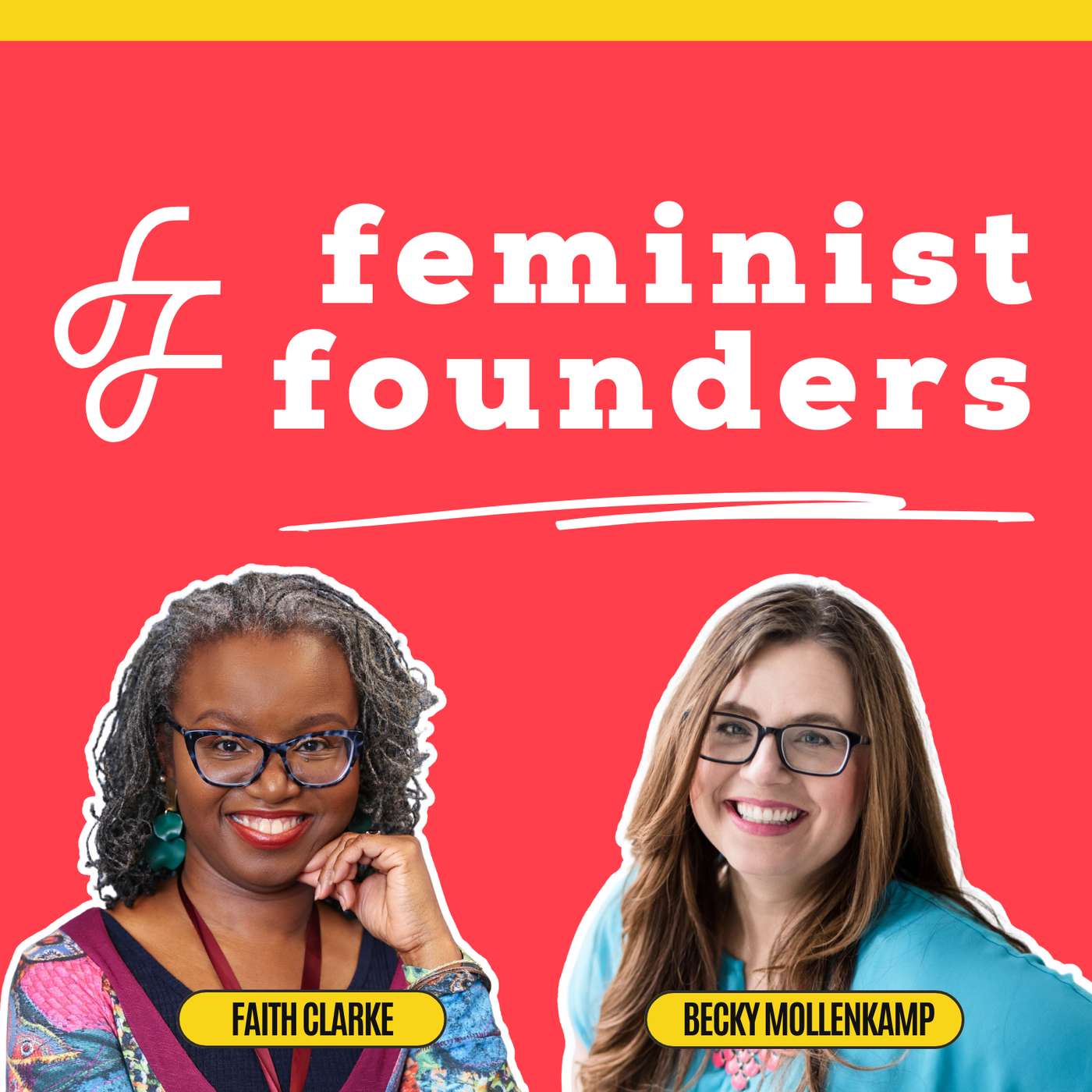
Feminist Founders: Building Profitable People-First Businesses
Becky Mollenkamp
Women Making Moves
Amy Pons
Queer News
E3 Radio
Nonprofit Mission: Impact
Carol Hamilton
Small But Mighty Agency: How to Grow Your Agency
Audrey Joy Kwan | Growth Strategist for Agencies
Disrupt Your Money
Meg K. Wheeler
Small Business Casual
Emily Aborn
Not Too Productive
Becca Rich
Messy Liberation: Feminist Conversations about Politics and Pop Culture
Becky Mollenkamp and Taina Brown
Empowered & Embodied Show
Kim Romain & Louise Neil
The Air We Breathe: Finding Well-Being That Works for You
Heather Sayers Lehman, MS, NBC-HWC, NASM-CPT, CSCS, CIEC, CWP
Careers at the End of the World: Reimagining Ambition, Work, and Your Job Search in Unprecedented Times
Jenn Walker Wall | Work Wonders Careers
The Passionistas Project Podcast | Motivational Stories of Passionate Women
Amy & Nancy Harrington | Women Inspiring Women
Humaning: The Shit We Need to Talk About
Steff Gallante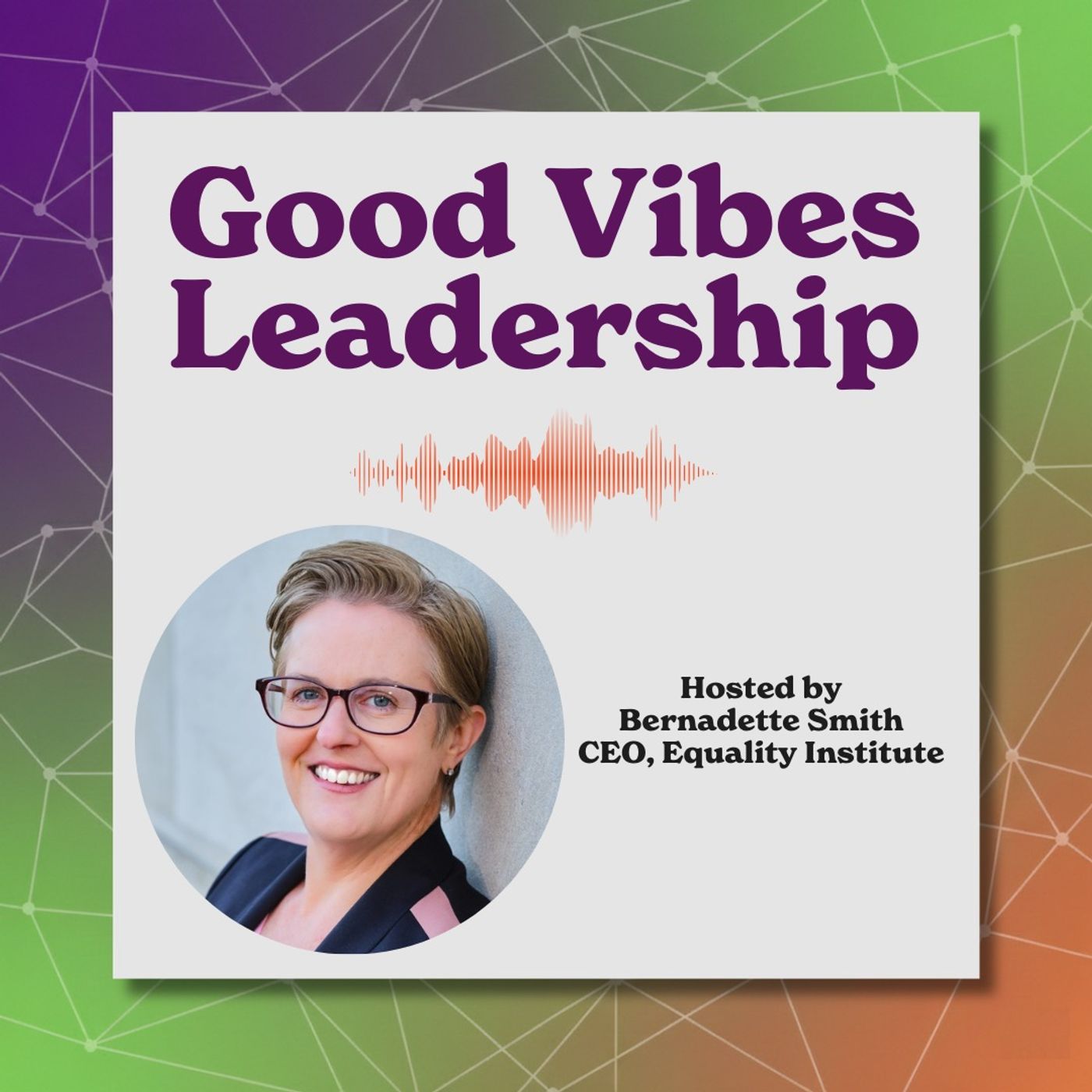
Good Vibes Leadership with Bernadette Smith
Bernadette Smith
The Art Of Imperfect Adulting
Amy Stone
Business as UNusual
BiCurean Consulting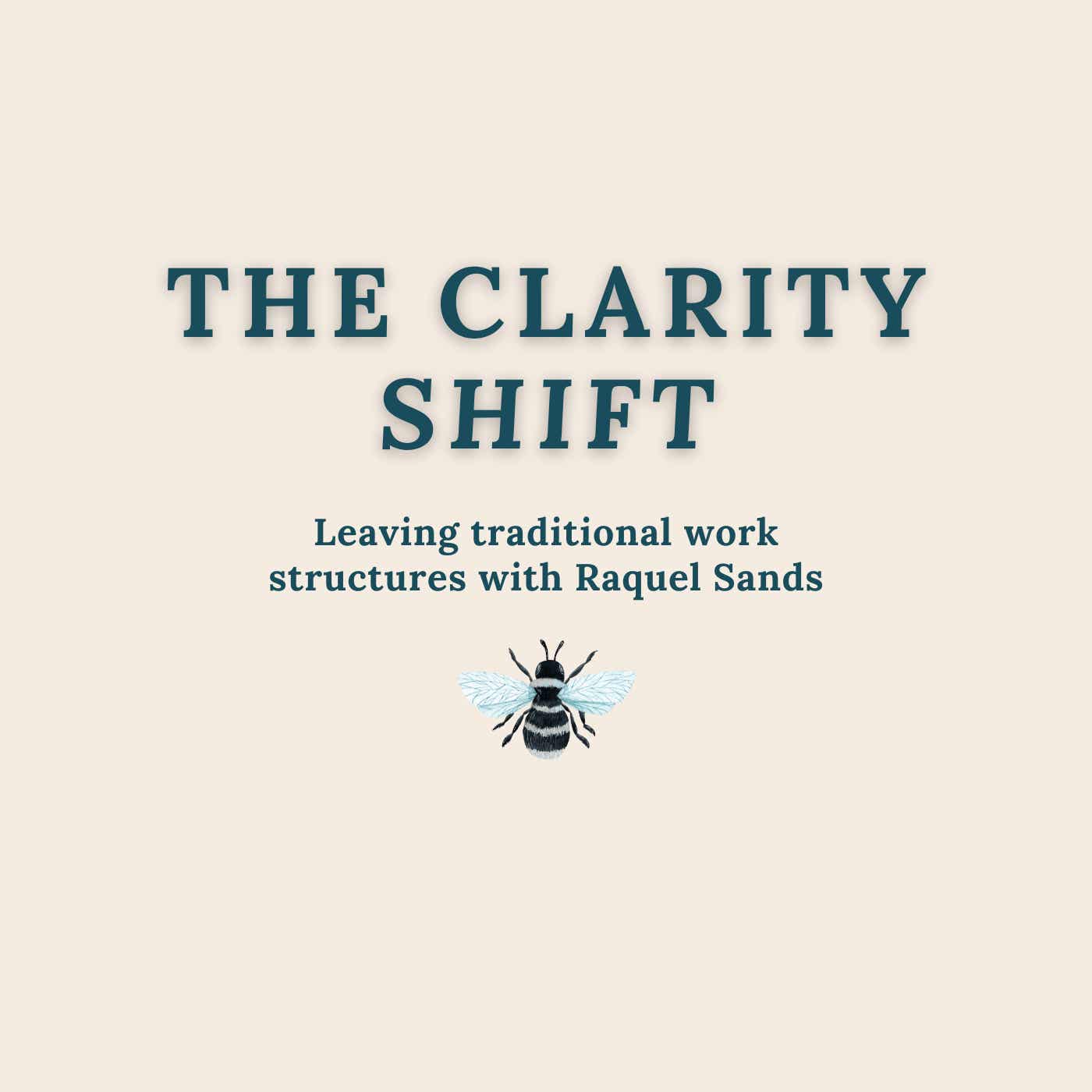
The Clarity Shift
Miriam Raquel Sands | Clarity + Alignment
Cozy Conversations with The Sister Project
Lauren Massarella and Michelle Anderson
Departure Menopause: Neurodivergent-Affirming & Weight-Inclusive Care
Melinda Staehling
The Empress and The Fool
Sarah Dittmore & Kaitlyn Gulock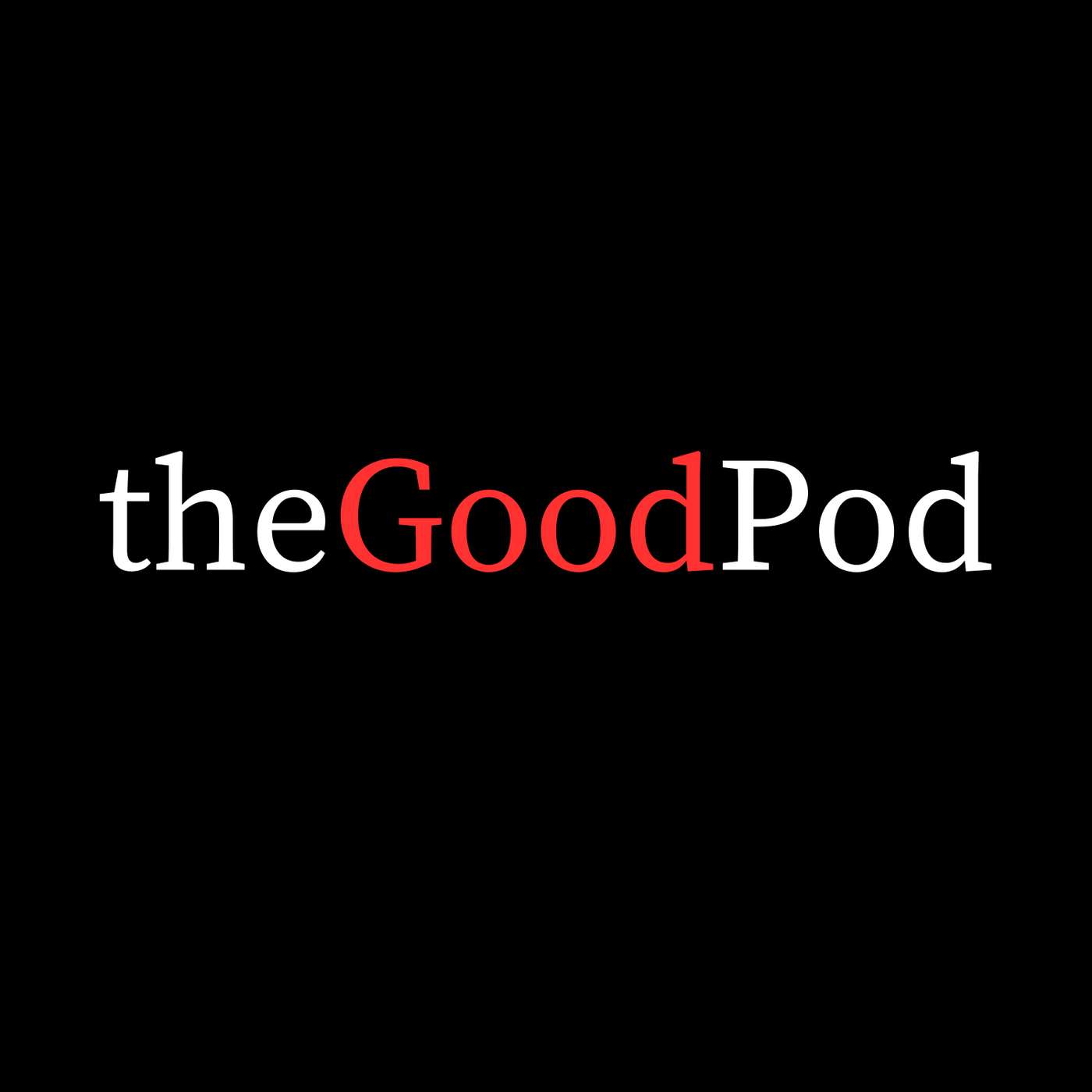
The Good Pod
Jason Reed and Marissa Garza
Gratitude Geek | Business Education for Gen X Women Solopreneurs
Kandas Rodarte | Gen X Growth Coach for Women Solopreneurs
Mental Health Warrior & Neurodivergent Advocate
Amy D. Taylor | Mental Health Warrior & Neurodivergent Advocate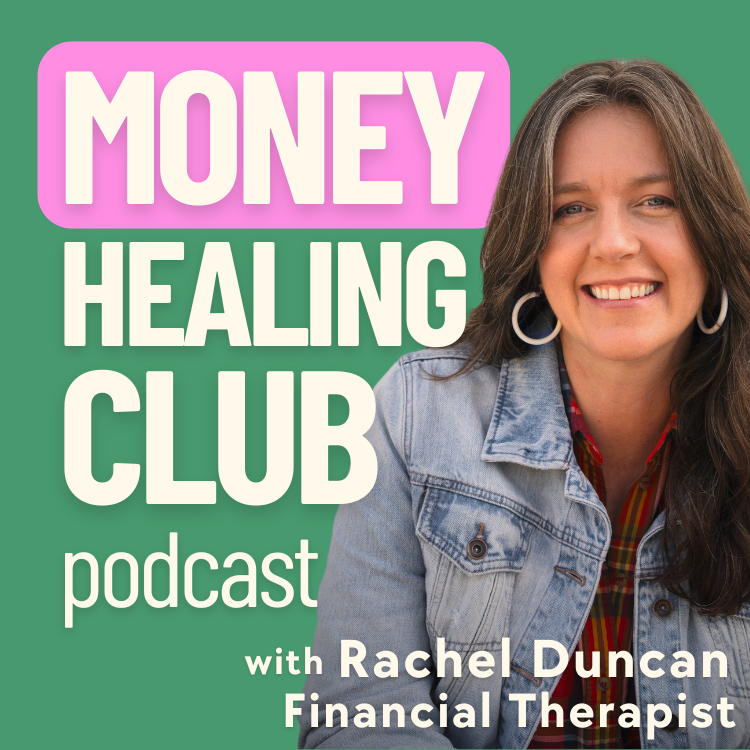
Money Healing Club Podcast
Rachel Duncan
noseyAF: Conversations about Art, Activism, and Social Change
Stephanie Graham
The RestLab with Jordan Maney
Jordan A. Maney
Was It Chance?
Alan Seales, Heather Vickery & Broadway Podcast Network
White Homework
Tori Williams Douglass, Benjamin Faye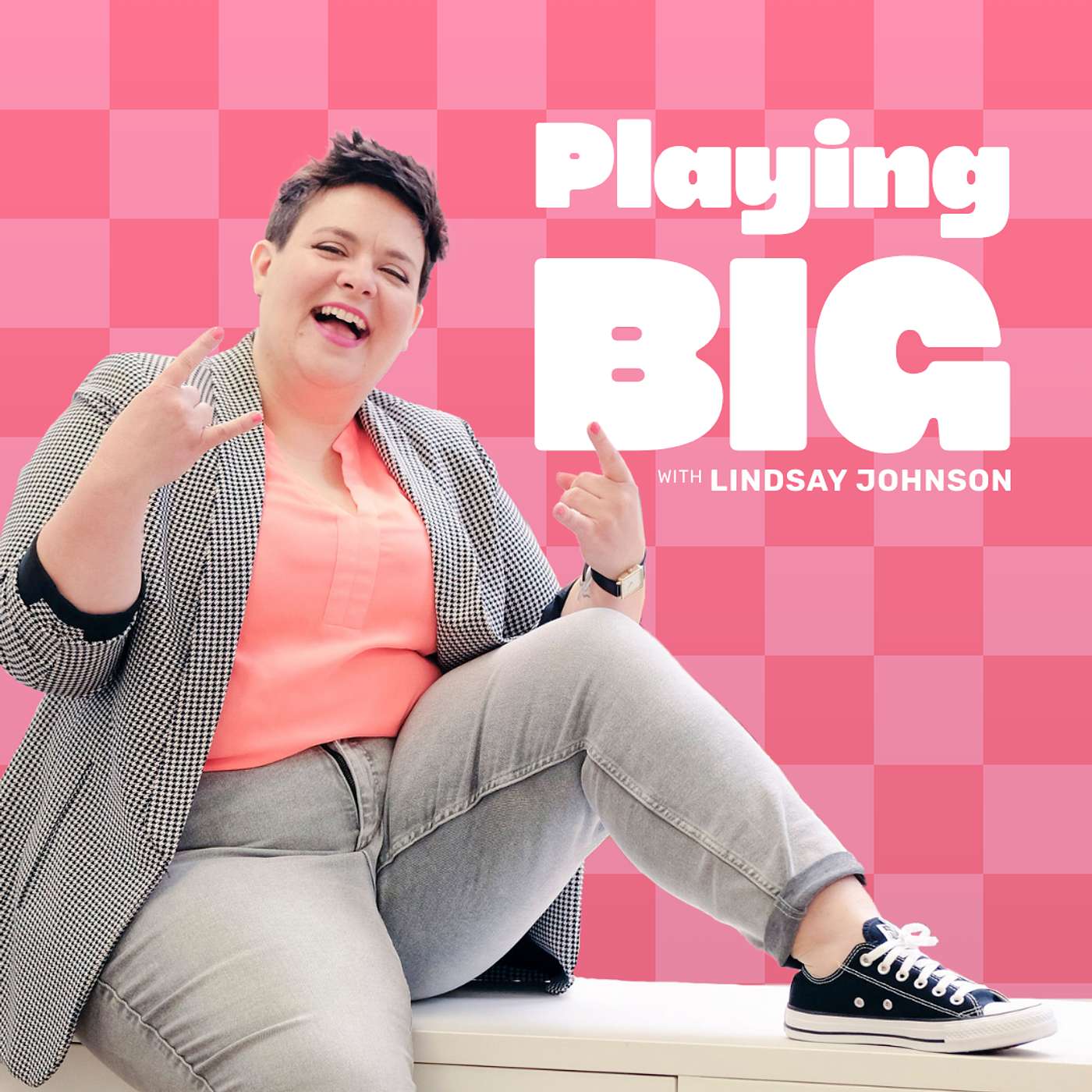
Playing Big with Lindsay Johnson
Lindsay Johnson, The Radical Connector






